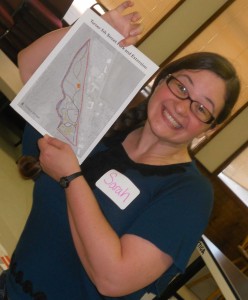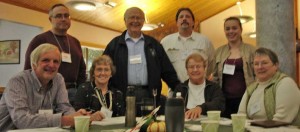On October 16, Oregon Partnership for Disaster Resilience (OPDR) and The Ford Family Foundation held the Oregon South Coast Resilience Forum. Roughly fifty local leaders came together from four Oregon counties and northern California. Of the many insights that came out of the day, one that struck me was the importance of the seemingly simple element of having a good relationship with your neighbors.
What does neighborliness have to do with resilience? Well, when disaster strikes, people turn to those closest to them for help. Disasters are known for bringing communities together, but what if the community already had a foundation of working together at the neighborhood level? Does that already exist? Can we take it for granted? Apparently not.
OPDR sent out a survey over the summer on local resilience, and one of the questions asked was how much confidence people had in different agencies and people to build community resilience. The trend was very clear that people had more confidence in local people than in national or state organizations. The one deviation in this was “your neighbor.” The average confidence rating for the closest person was less than any other local category except “local government.”
There are some groups that are working to change this trend. Bandon Prepares, which had strong representation at the forum, engages in a program called “Map Your Neighborhood” (MYN). This program identifies the people, equipment, infrastructure, and vulnerabilities in a neighborhood through group activities that bring people together. It lays a common baseline for what to do in and after an emergency, including how to communicate with neighbors through signs (“ok” or “help”) and established gathering sites.
Programs like this can take the pressure off of individuals to do it all by themselves. This kind of neighborhood network has clear benefits during and after emergencies, but it also increases feelings of safety and community in normal times, and perhaps most importantly, it can be fun!
 About the Author: Sarah Allison is a second year concurrent Community and Regional Planning, and Oregon Leadership in Sustainability graduate student and the project coordinator for the Oregon South Coast Resilience Forum.
About the Author: Sarah Allison is a second year concurrent Community and Regional Planning, and Oregon Leadership in Sustainability graduate student and the project coordinator for the Oregon South Coast Resilience Forum.



